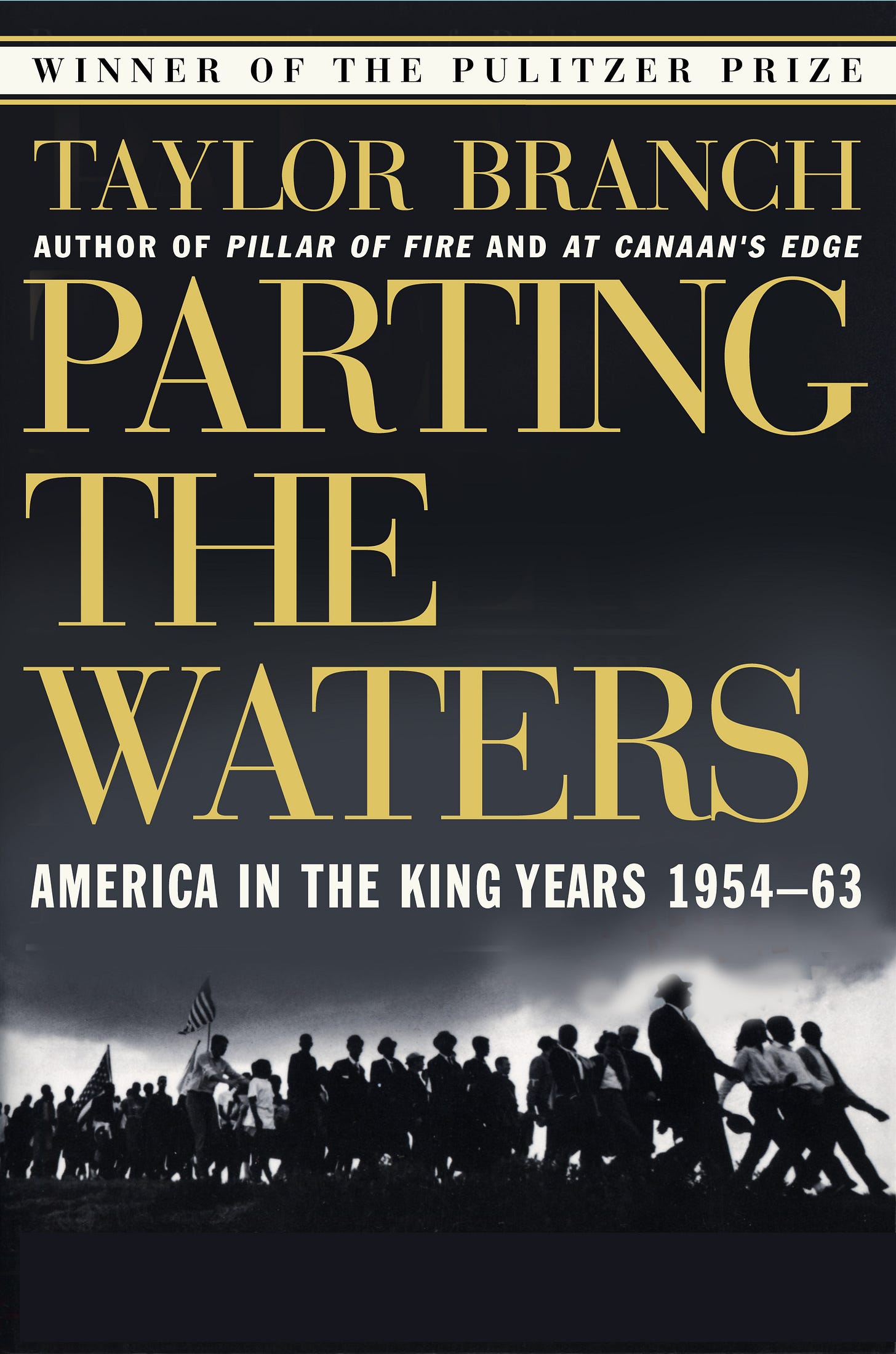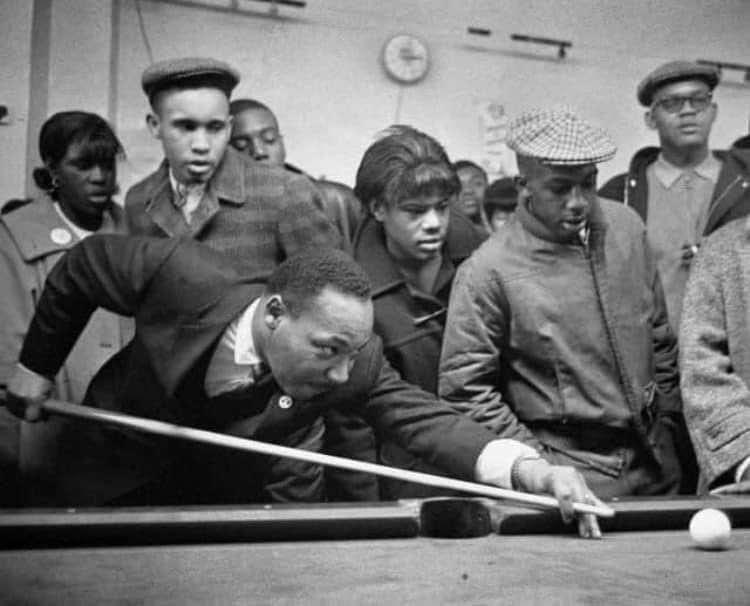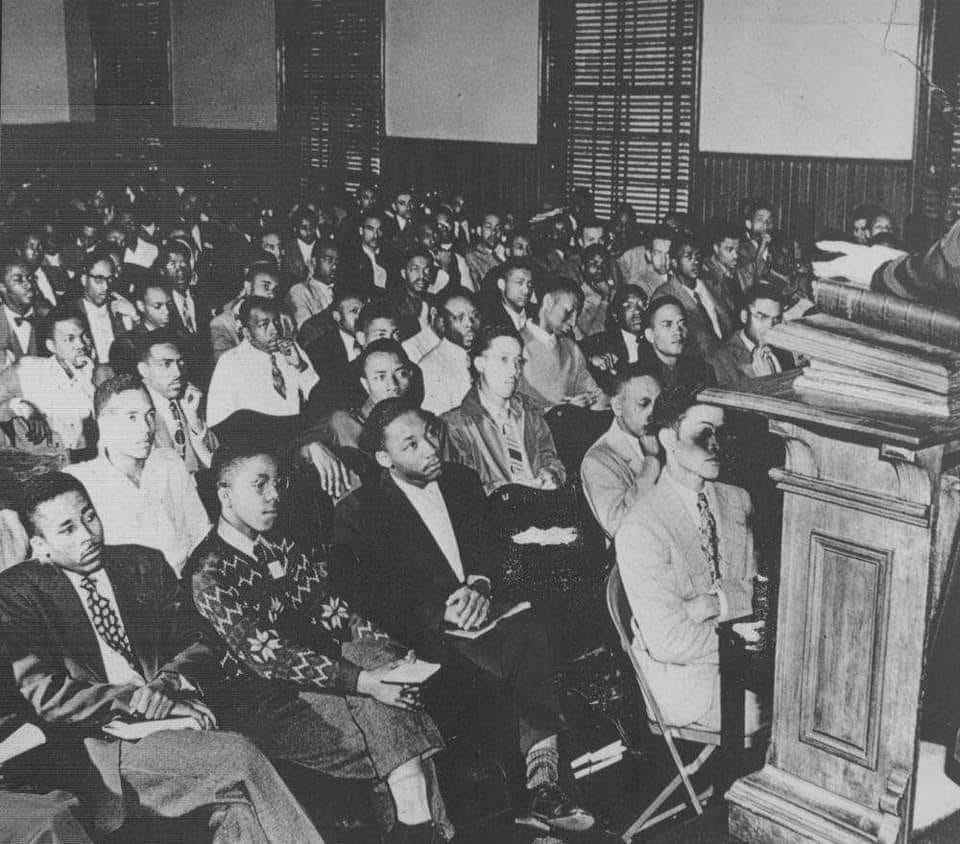For the first time in several months I have taken some time to read a book for pleasure, with the latest text being a re-read of Parting the Waters: America in the King Years 1954-63, Dr. Taylor Branch's Pulitzer Prize winning book about the life and work of Dr. Martin Luther King, Jr.
After finishing the first two chapters, ones that establish King's maternal and paternal ancestral ties to what would become Atlanta, Georgia’s historic Ebenezer Baptist Church, as well as what would become arguably the two most prominent Baptist affiliated colleges in American history, Morehouse and Spelman, there was one paragraph that struck me like a bolt of lightning as it humanized the early 20th Century Men of Morehouse (students)—many of whom, like King, would become deified due to their professional achievements after their school days were done.
Dr. Branch, like King’s (and later, my own) sociology professor, Dr. Anna Grant, notes that when young M.L. King followed in the footsteps of his father, Rev. M.L. King, Sr., and his maternal grandfather, Rev. A.D. Williams, by enrolling at Morehouse in 1944, that he was known as a sharp dressing, card playing, pool hustling, lady charming, dance all night sort of young man—all with the disapproval of his prominent father AND Rev. Dr. Benjamin Mays, Morehouse's president who was not only an ordained minister, but also a philosopher of great renown.
Dr. King (above) shooting pool in Chicago, Illinois circa 1965
Branch, specifically noted that President Mays, during his weekly Sale Hall chapel speeches to the student body, used his powerful oratorical skills to discuss world events that included at the time the Second World War abroad, and the rather nascent fight for Black civil rights at home. Thus, the passage that struck me last night was one in which Branch recounts that the legendary "Bennie" Mays was frustrated by the fact that his Morehouse mentees rarely seemed "Excited about anything larger than a hamburger..."
Young M.L. King, known as “Tweedie” at Morehouse for his stylish dress in the finest Tweed suits and sports coats, sitting at rapt attention as President Benjamin Mays speaks during weekly services at Sale Hall Chapel.
Now, if you're wondering why that passage struck me, the simple answer is that during my era as a history major at Morehouse in the 1990’s, we knew all too well that the men who matriculated there in the 1940's and 50's went on to become some of the leading figures in American history. So, I guess it was somewhat hard for me to imagine that the men that I grew up admiring from that era, iconic leaders like Dr. King, Rev. C.K. Steele, Lerone Bennett, and Dr. Samuel DuBois Cook, to name a few, were once young students who possessed brilliant minds—but were still YOUNG and prone to acts that frustrated their own teachers and mentors.
And yet, it is clear both from their own later testimonies about the importance of their collegiate days at Morehouse, that these and countless other legends were well schooled and well aware of the critical issues of their day even if, on occasion, their wise President Mays couldn't actually tell.
As one who has mentored and taught students from the middle school to collegiate levels at varying times since I graduated from Morehouse in '94, I have often shared with my young mentees recollections from my own past in hopes of inspiring them to understand that long term success isn't simple to sustain—and that short term failures are not always fatal.
And yet, I do find myself, at times, lamenting to my closest friends that our modern society, from the youth to even some elders, don't seem to take the events in our world all that seriously 😢. Thus, my frustration at times when it seems as if the lifestyles of the rich and famous—or the latest Tik-Tok challenge—will move the discussion needle more quickly than genocide in Gaza and military attacks in Ukraine abroad—or unrelenting attacks on free speech here at home!
Thus, to read anew last night that even in an era that I have idolized (if not idealized)—the 1940's to 50's Morehouse era—that the future "Who's Who" in 20th Century Black American leadership may have seemed indifferent to the world writ large to their mentors—but clearly were not—perhaps the same will prove to hold true in our modern era, one in which there are myriad voices like mine crying out in the cyber wilderness about the crucial issues of our day, so that perhaps our words and efforts are not falling completely on deaf ears.
Time will tell...





Well said my brother. I often have these conversations with my friends and family. I’m always wondering if young people are paying attention to the many issues that the world faces along with the plight of our people here in America. I think there are some bright young minds out here that are cognizant of the issues. I just hope they are, like we were, respectful of those who blazed the trail and seek guidance with reverence to our historical plight.
We can hope...if we choose to! 💐💙🙏